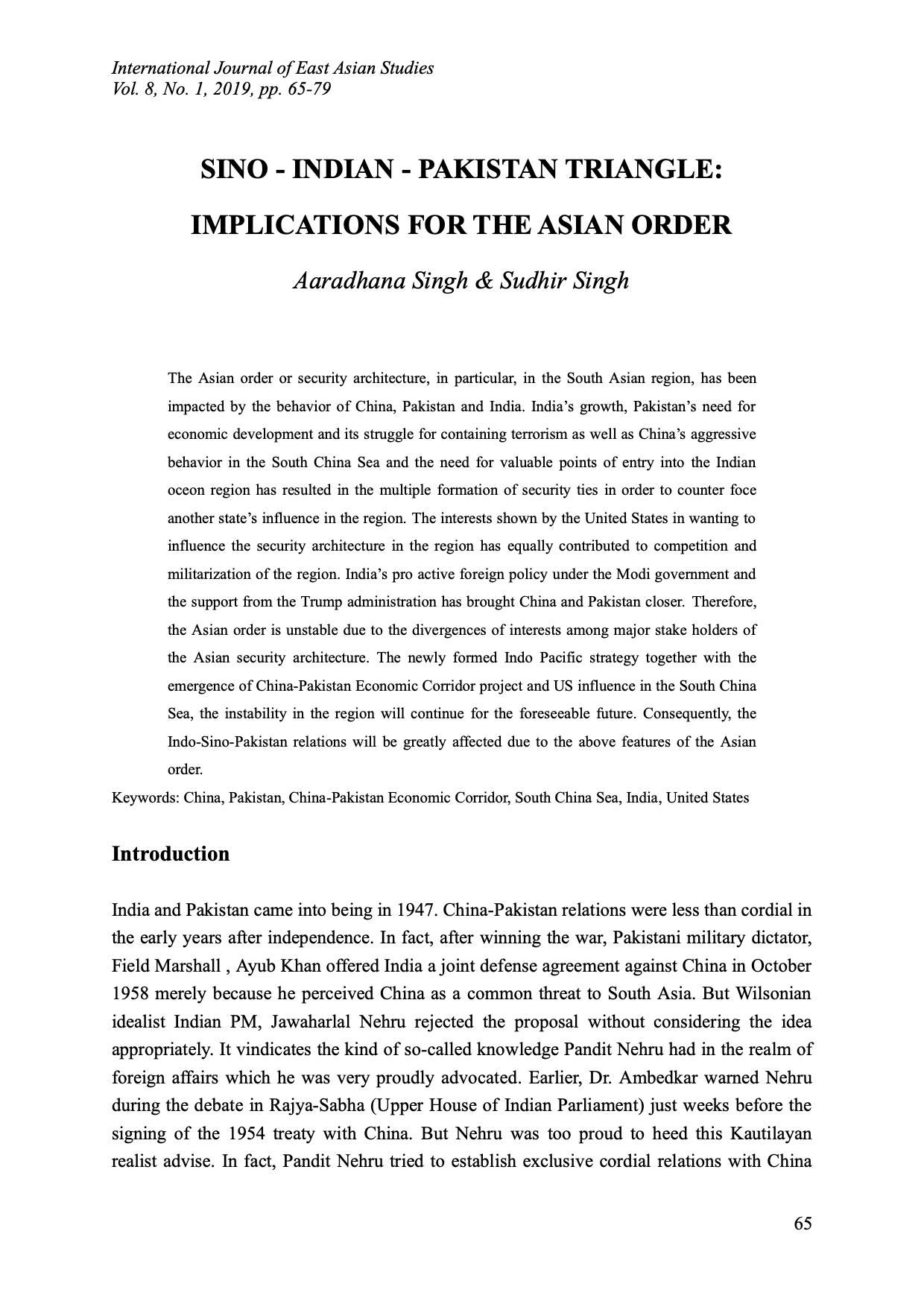Sino-Indian-Pakistan Triangle: Implications For The Asian Order
DOI:
https://doi.org/10.22452/IJEAS.vol8no1.5Keywords:
China, Pakitan, China-Pakistan Economic Corridor, South China Sea, India, United StatesAbstract
The Asian order or security architecture, in particular, in the South Asian region, has been impacted by the behaviour of China, Pakistan and India. India’s growth, Pakistan’s need for economic development and its struggle for containing terrorism as well as China’s aggressive behaviour in the South China Sea and the need for valuable points of entry into the Indian Ocean region has resulted in the multiple formations of security ties in order to counter force another state’s influence in the region. The interests shown by the United States in wanting to influence the security architecture in the region has equally contributed to competition and militarization of the region. India’s proactive foreign policy under the Modi government and the support from the Trump administration has brought China and Pakistan closer. Therefore, the Asian order is unstable due to the divergences of interests among major stakeholders of the Asian security architecture. The newly formed Indo Pacific strategy together with the emergence of the China-Pakistan Economic Corridor project and US influence in the South China Sea, the instability in the region will continue for the foreseeable future. Consequently, the Indo-Sino-Pakistan relations will be greatly affected due to the above features of the Asian order.
Downloads

Downloads
Published
How to Cite
Issue
Section
License
Copyright
Submission of a manuscript to the WILAYAH implies that the submitted work has not been published before (except as part of a thesis or report or abstract), that it is not under consideration for publication elsewhere; that all co-authors have approved its publication. The WILAYAH : International Journal of East Asian Studies adopts CC BY license. As such, we would be grateful if an acknowledgement accompanies the republication that the work was originally published in WILAYAH. The editors will ensure digital preservation of access to the journal content by the Journal depository section.
Disclaimer
Although the Department of East Asian Studies is the publisher of the WILAYAH : International Journal of East Asian Studies, the views presented in the WILAYAH are entirely those of the contributors and do not reflect the official stand of the Department of East Asian Studies. The Department does not hold itself responsible for the accuracy of any article published. Publisher and co-publishers assume no responsibility, nor by the editors for any injury and/or damage to persons or property as a result of any actual or alleged libellous statements, infringement of intellectual property or privacy rights, or products liability, whether resulting from negligence or otherwise, or from any use or operation of any ideas, instructions, procedures, products or methods contained in the material therein.





